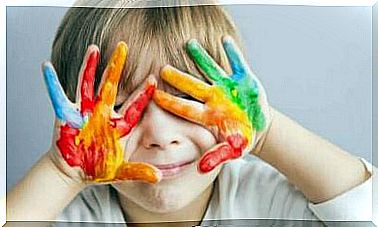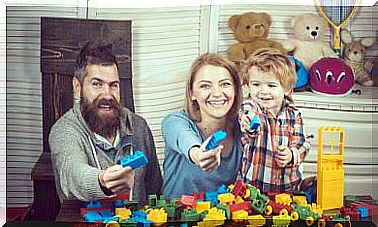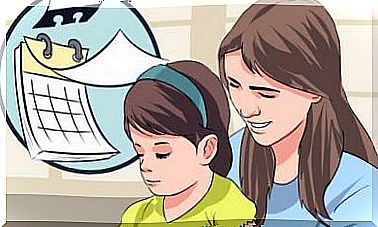The Fear Of Dolls In Children

Puppets or dolls are toys that are easy to make with few resources and materials. At the same time, they are also easy to find in any toy store. Children can use them to imitate games and express themselves. They are also a great resource for educators and psychologists. However, sometimes there are children who have a fear of dolls. Why is this happening?
This kind of irrational fear of dolls is called “doll phobia” and is more common than you might think. It is important to understand children who have this type of fear to help them overcome it.
fear of dolls
While dolls can be a lot of fun for some, others can feel an irrational and uncontrollable fear. And if a child is afraid of dolls and the treatment does not take place in childhood, the fear can even carry over into adulthood.
If this fear changes the quality of life of the child suffering from it, experts consider it a phobia. And it is important that parents and professionals do everything in their power to help the child overcome it.

For those who have no fear or panic regarding dolls, it may seem absurd to think that others do. But in reality, for those who suffer from it, it is a very real fear and they are having a very hard time.
Pupaphobia has to do with other phobias such as automatonophobia (fear of human-like figures) or pediophobia (fear of dolls). It may also be related to coulrophobia, which is the fear of clowns or mimes. This all depends on the type of fear or panic the child has and how they experience it.
The symptoms of fear of dolls
The symptoms of a doll phobia depend on the severity with which the child experiences them. Physical symptoms may include dizziness, a feeling of unreality, headache, palpitations, nausea, and panic attacks.
But in addition to the physical complaints, there are also psychological ones. These occur when the child or adolescent is aware that their fear is irrational and their thoughts are distorted. However, they can’t help but avoid the puppets or hand puppets because of the unpleasant feeling they give them. This can cause self-esteem problems in the affected person.
The possible causes of fear of dolls
Fear of dolls can have certain causes that you should consider, although most of them are unknown. The child may have had some traumatic experience with these types of toys. It is also possible that they have a genetic predisposition to suffer from phobias or that their personality traits make them more prone to them.
However, with this in mind, we must also remember that in most cases this happens because of an unpleasant experience. It could be because of a scary movie or story, a bad experience with dolls, a dream, etc…
Who does it affect the most?
These kinds of fears and phobias usually affect children and adolescents more than adults. It is also a phobia that, with maturity and an understanding of what is real and what is not, can be overcome. Understanding why little ones are afraid of such dolls is necessary to overcome the irrational and uncontrollable panic.
How to overcome fear?
The biggest challenge in the first place is to overcome the fear of dolls. It is important to focus on the child and his specific condition in order to be able to help him in the best possible way. That’s why seeing a professional is essential. The professional will help to channel the whole situation around the fear and know that there is only one fear or several.

Ideally, once the fear or doll phobia has been diagnosed, there should be psychotherapy through a cognitive-behavioral desensitization process where the child may be able to overcome their fear through professional techniques. The child will be able to get rid of the fear thanks to the help of a professional who will continuously monitor the process.
Getting rid of the phobia of puppets or dolls
It is not easy to overcome a phobia or fear, so it is a slow and complex process. It must be approached in the right way so that it does not get worse and for this it will always be necessary to be in the hands of a good expert. The goal is that the person can stand in front of the dolls without experiencing fear.
In a controlled environment and together with a professional, therapeutic techniques should be practiced through the gradual exposure of the dolls. Thus, the person’s mind will be able to take over and internalize the experience and put an end to the irrational thoughts and unpleasant symptoms they are experiencing.









